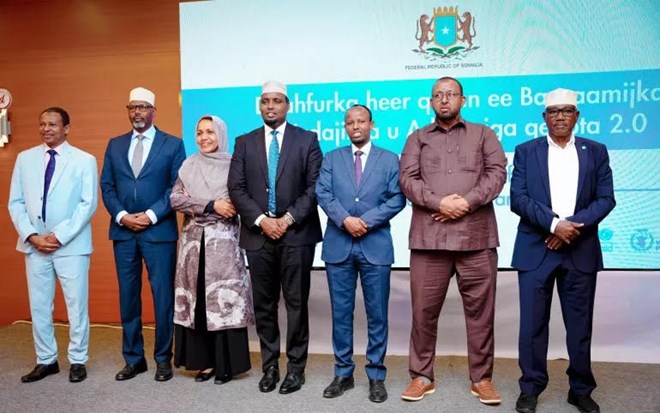
Thursday February 22, 2024

UNICEF Somalia/Mumin
MOGADISHU (Xinhua) -- Somalia has launched a new program to build the resilience of households and local communities to economic and climate-related shocks in four districts of Puntland and Galmudug states.
The program, which was launched on Wednesday, will target one million people in the two states and will be implemented over 18 months in the first phase.
Mohamud Abdirahman Farah, minister of planning, investment and economic development, said in a statement released on Thursday in the Somali capital of Mogadishu that the Joint Resilience Program is an important step in strengthening the resilience of communities in the two states of Somalia.
The joint action of the World Food Program (WFP) and the United Nations Children's Fund (UNICEF) will play a central role in addressing the effects of climate-related shocks, food security, nutrition, education, and health, Abdirahman said.
The program's initial allocation of 32.5 million U.S. dollars targets school-age children, internally displaced children, vulnerable adolescents, and pregnant and breastfeeding women, according to the statement.
UNICEF Representative in Somalia Wafaa Saeed said most children in the East African country continue to endure climate-related shocks and protracted conflicts with alarming regularity, often with far-reaching consequences for their health and well-being.
"Over the years, this partnership has provided critical, life-saving support to vulnerable children and women, enabling them to better cope with shocks and crises, and we are delighted to see its expansion to the four districts," added Saeed.
WFP Somalia Country Director Elkhidir Daloum said the program builds on the strong foundation established by the Joint Resilience Program and will allow for a steady shift from humanitarian response to improved resilience, building the capacity of communities on the frontlines of the climate crisis to respond to shocks. ■